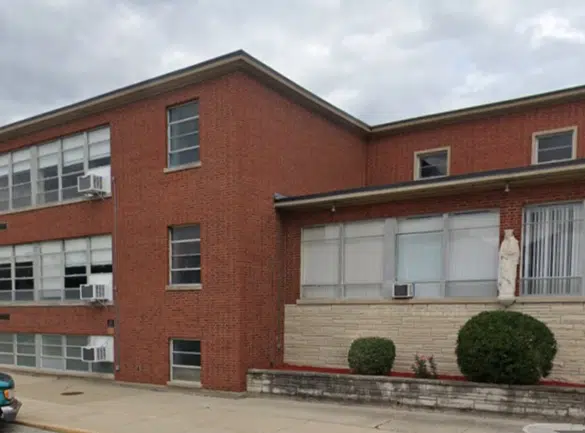
A Chicago priest who has served eight parishes over the course of five decades is now at the center of a sexual abuse allegation involving a minor, according to NBC Chicago. The accusation stems from Rev. Curtis Lambert's time at Sacred Heart of Jesus Catholic Church in Melrose Park during the 1980s.
Cardinal Blase Cupich, Archbishop of Chicago, addressed the situation in a letter sent to the parish communities where Lambert has served, including Prospect Heights, Portage Park, and Mount Prospect. Lambert, who began his ministry at St. Basil Visitation Catholic Church in Englewood, currently serves at St. Peter Damian Catholic Church in Bartlett.
In the letter, Cupich emphasized the seriousness of the allegation while noting that Lambert "strenuously denies" the claim. He also reaffirmed the Archdiocese of Chicago’s commitment to supporting victims and ensuring the safety of children.
Alfred Antonsen, a survivor of clergy abuse and leader of the Chicago chapter of the Survivors Network of those Abused by Priests, expressed a mix of frustration and cautious neutrality. "I'm not going to say he’s guilty, I’m not going to say he’s innocent because I don’t know," Antonsen said. "But I know it’s hard to make these things up."
Antonsen, who endured abuse as a high school sophomore, shared how it took him decades to confront his own trauma. “Took me almost 50 years,” he said. “I blocked it out of my mind for almost 50 years. And when I got these memories back, I was an angry person for a long time.” Now an advocate for survivors, Antonsen has called for greater accountability within the Catholic Church.
Antonsen also noted the personal difficulty of hearing the allegation against Lambert, a man he described as having seemed like "a really good guy" over the years.
Cupich’s message encouraged anyone who has experienced sexual abuse by clergy or church personnel to come forward, assuring they would be met with “dignity and compassion.”
The accusation against Lambert is the latest in a series of challenges faced by the Catholic Church in addressing historical and ongoing reports of abuse. For many survivors, the process of healing remains a long and painful journey, one that underscores the importance of transparency and support.

Survivors of clergy abuse often face significant barriers when deciding to come forward, especially when the abuse occurred decades ago. With recent allegations against Rev. Curtis Lambert raising questions about accountability, attorney Erv Nevitt provides a clear overview of the legal pathways available to those affected. Drawing from his extensive experience handling abuse cases in Illinois, Nevitt outlines how survivors can take action, the challenges they may encounter, and the importance of recent legal reforms in empowering victims.
Editor Darla Medina: What legal options do survivors of clergy abuse have if they decide to come forward, even decades after the alleged abuse occurred?
Attorney Erv Nevitt: In Illinois, survivors have more flexibility now than they did in the past. The state legislature eliminated the statute of limitations for child sexual abuse cases, meaning victims can file civil lawsuits no matter how much time has passed since the abuse occurred. This was a significant change aimed at giving survivors the chance to seek accountability on their own timeline.
Medina: What about criminal charges? Can cases this old still lead to prosecution?
Nevitt: That depends on when the abuse occurred and the specific laws in place at that time. For incidents from the 1980s, authorities would need to examine the statute of limitations that existed then. However, even if criminal charges aren’t an option, civil lawsuits remain a powerful path for survivors to demand justice and compensation for the harm they endured.
Medina: What challenges do survivors often face when they come forward?
Nevitt: One of the greatest hurdles is emotional—reliving the trauma and dealing with skepticism or backlash. Survivors often struggle with feelings of shame, fear, or doubt about whether they’ll be believed. That’s why it’s critical for communities, legal systems, and institutions to provide unwavering support and ensure the process is as compassionate as it is thorough.
Medina: Do you think enough progress has been made in holding institutions accountable?
Nevitt: There’s been progress, but there’s always more to do. Transparency and accountability still need to improve, especially when it comes to institutions like the Church. Survivors deserve honesty and a genuine commitment to preventing abuse in the future.
If you or a loved one has been affected by clergy abuse, you don’t have to face this journey alone. Our team is here to provide compassionate guidance and help you understand your legal rights. Contact us today for a free, confidential consultation and let us assist you in taking the first steps toward healing and justice.
 info@legalherald.com
info@legalherald.com